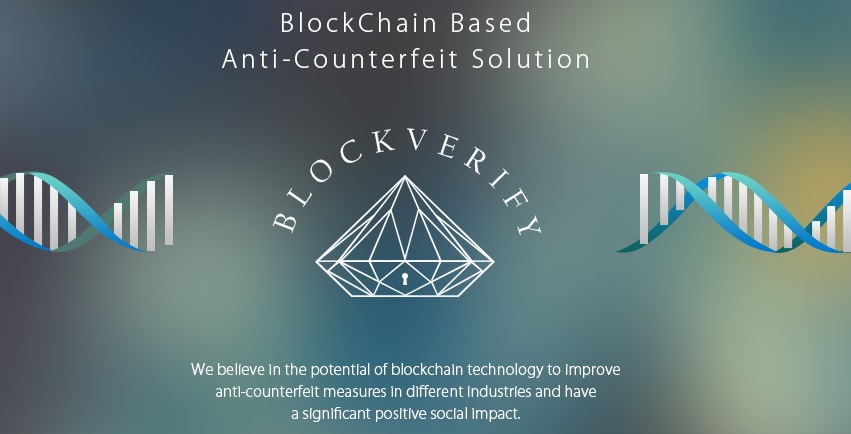The team behind the “blockchain-based anti-counterfeit solution,” BlockVerify, wants to have a global, positive social impact by using blockchain technology to “make the world more honest.”
They started by focusing their efforts on the pharmaceutical industry because they believe that they may be able to do the most good where counterfeiting has the potential to cause the most harm. Pavlo Tanasyuk, founder of Block Verify (and co-founder of SpaceBit), told Cointelegraph:
“We decided to start with pharma as it is one of the sectors where people are directly affected by using counterfeit products. That can lead to various complications and even death of the consumer. It is also one of the most challenging environments.”
Counterfeit drugs top the list of goods that cause the greatest economic loss and impact worldwide. Block Verify has been testing solutions in pilot programs with both a Swiss pharmaceutical company that has a UK presence and a London-based beauty company. (Counterfeit cosmetics rank 15th on the list.) They hope to help disable the US$1.77 trillion value of the global trade in counterfeit (and pirated) goods projected for 2015 by the International AntiCounterfeiting Coalition (IACC).

The US Food and Drug Administration (FDA) wrote in 2013 that “more than a third of anti-malaria drugs available in Sub-Saharan Africa and Southeast Asia are counterfeit or substandard.” Fake malaria and tuberculosis drugs cause about 700,000 deaths per year, according to the UN in 2012. The FDA announced a solution they invented in 2013 that they called “an innovative portable tool” that would “allow workers in the field ... to quickly, easily and cheaply identify suspect medicine.”
But what if 100% of the medicine that made it to the field, to the hospital room and, most importantly, to the consumer could be automatically trusted? What if workers in the field and consumers at the time of purchase could scan a QR code on the box and know immediately that their medicine was authentic? This is what Block Verify wants to make possible by using the Bitcoin blockchain, “the most trusted immutable data store in existence.”
The Block Verify team will also use a private blockchain simultaneously with the Bitcoin blockchain, which they will use as “a ledger to hash certain data to secure [their] own chain.” They will give every product its own permanent record on their blockchain, making manipulation of private keys impossible, says Tanasyuk. The system is designed to protect everyone at each point in the supply chain, creating a “trustless system of transparency.”

They will use consumer-level authentication and track-and-trace (TnT) technology to record changes of ownership, but Tanasyuk says consumers need not be concerned about privacy.
“We are not hashing the full history of ownership into bitcoin blockchain, but using our own private blockchain. We use bitcoin as a trustless environment to confirm important events within our own chain. In that sense we are creating a system that is transparent to the level that we want it to be. What is more important is that it generates trust and a certain level of transparency between manufacturer, supplier, government and consumer.”
Consumers also need not be worried about the possibility of duplicate product identification numbers, any more than they have to worry about Bitcoin double spending, because the system will be “too sophisticated for that.” Eventually, any type of product will be verifiable through Block Verify’s service, including name brand clothing, electronic tablets, and precious jewelry. The system will also be able to discover diverted goods, stolen merchandise, and fraudulent transactions.
Block Verify announced their system at Inside Bitcoins Berlin on March 6, and they plan to launch their full website soon. They will reveal more information about their pilot programs in the coming weeks.
Did you enjoy this article? You may also be interested in reading these ones:
